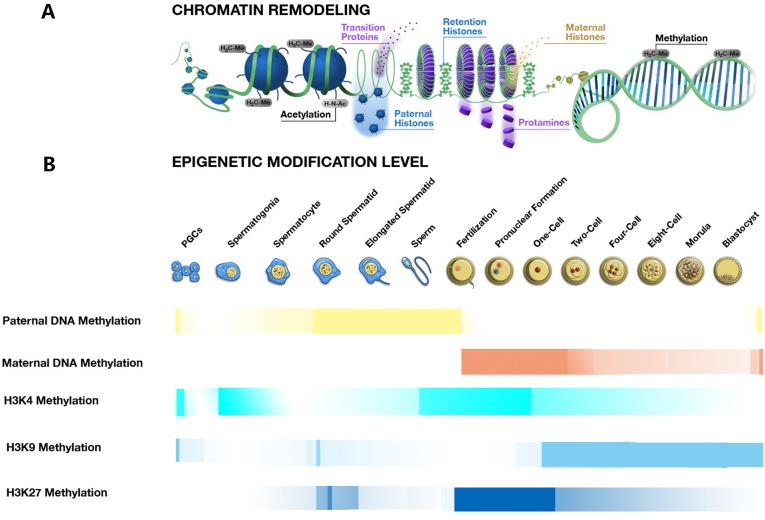Figure 1. Chromatin remodeling and epigenetic modification changes during spermatogenesis, fertilisation and early embryo development.
A. The process of chromatin remodeling during the spermatogenesis, fertilisation and embryogenesis. The process of chromatin remodeling mainly occurs with the condensation and decondensation of chromatin during spermeiogenesis and after fertilisation. During spermiogenesis from the spermatid to a sperm, the nucleus histones are replaced by the protamine, leading to the chromatin condensation, still with about 15% histone retention in the periphery of the nucleus. After fertilisation, before the pronuclear formation, the protamine-to-histone transition occurs, with the chromatin decondensation, the maternally derived histones replace the sperm protamines. B. The transformation of some epigenetic modifications during the spermatogenesis, fertilisation and embryogenesis. The transformations of some epigenetic modifications, including the DNA methylation, H3K4 methylation, H3K9 methylation and H3K27 methylation are essential for sperm production and early embryo development. These epigenetic modifications work cooperatively to regulate phase-specific gene expression that further controls key events in the processes of spermatogenesis, fertilisation and embryogenesis.

